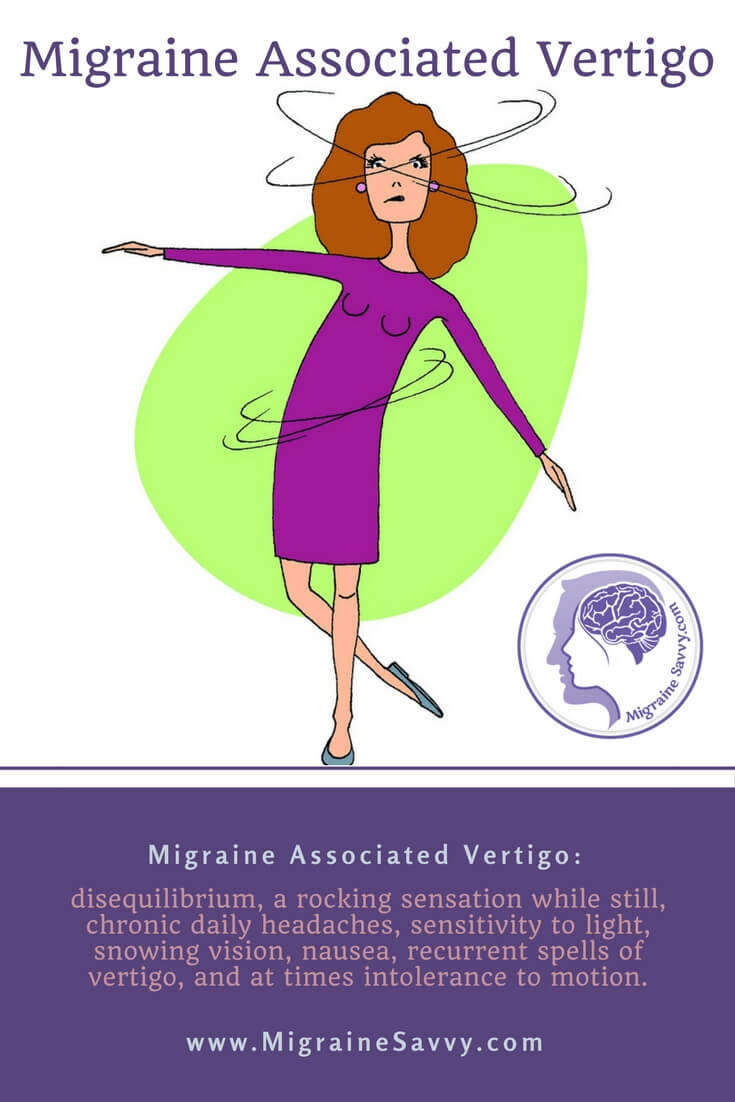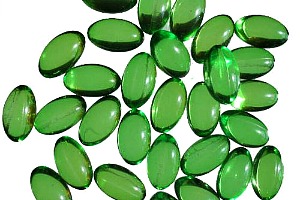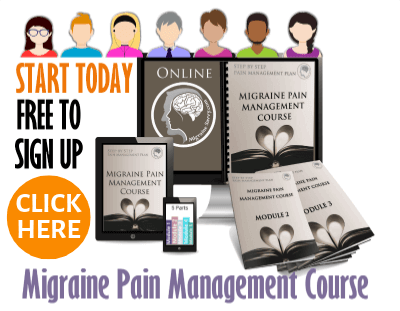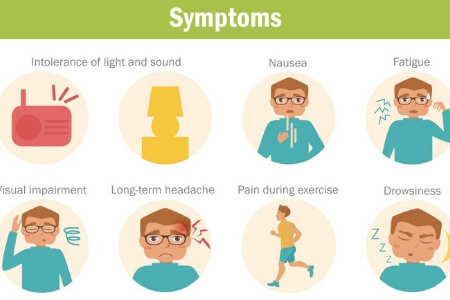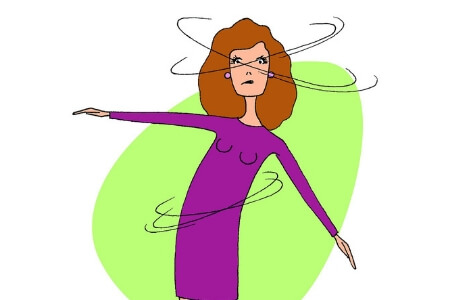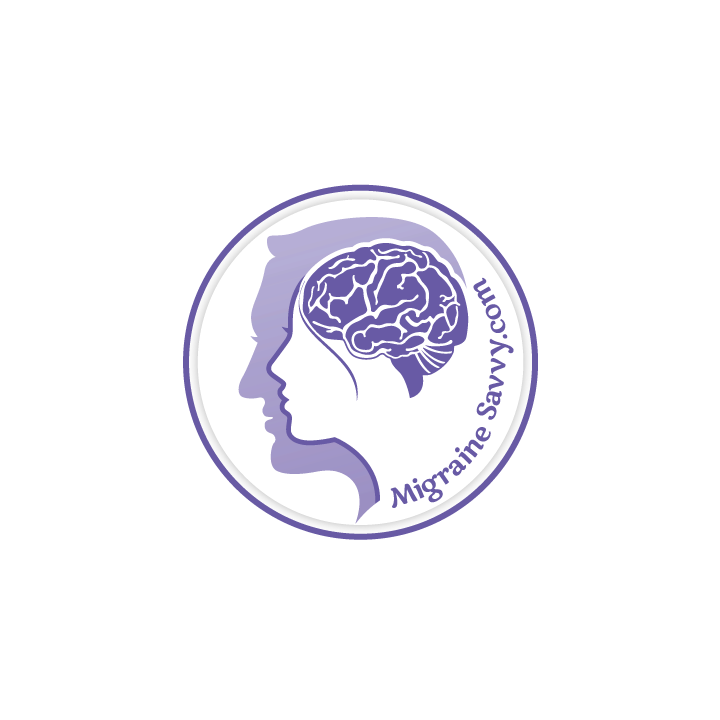- Home
- Migraine Symptoms
- Migraine Associated Vertigo
COMPLETE MAGNESIUM SUPPORT
My Top Choice - Magnesium Breakthrough - The ONLY supplement with all 7 essential magnesium types in one formula. Most only have 1-2 types, leaving you deficient.
Migraine Associated Vertigo: Do’s and Don’ts
Migraine Associated Vertigo (MAV) is a syndrome where continual dizziness is suspected to be related to migraines. It sounds simple, but it's not.
It's a very complex condition and difficult to diagnose.
The dizziness is not usually accompanied by a headache, or if it is, it might not be your typical migraine type headache.

MAV at one time was rarely diagnosed, but now it's being considered the most common cause of chronic dizziness.
Research through clinical experience and genetics is being done in an effort to find the cause, but at time of writing, it's still unknown exactly what causes MAV.
This constant dizziness is often described more as: a disequilibrium, a rocking sensation while still, chronic daily headaches, sensitivity to light, snowing vision, nausea, recurrent spells of vertigo, and at times intolerance to motion. This is because it has to do with middle ear disturbances.
You might only experience one of these symptoms or you could have all of these symptoms at different times.
If you already get migraines, you might experience these symptoms away from your 'normal' attack. This causes problems in diagnosing this condition easily, which can often be very frustrating.
The symptoms are mostly objective and although testing can be done, the results usually come back completely normal. This condition is often misdiagnosed as Meniere's disease, vestibular neuritis or a form of a psychiatric disorder.
MAV is also called Vestibular Migraine.
So you see now... how it's complicated.
What You Can Do Now for Migraine Associated Vertigo

You might find that understanding this dizziness is related to migraines, with no pain, a relief. Diagnosis is half the cure... right? But you might also find it to be very difficult at times. (I did) You may not know what is going on for quite a while and feel like you are lost in limbo land.
The good news is that vertigo is treated in the same way as "normal" migraines.
So it's best to consult with a neurologist that has a special interest in migraines.
Prophylactic medication(s) can be used if the MAV occurs several times a month or is continuous over several weeks or months.
Avoid these things:
• common food triggers like: red wine, MSG, other alcoholic beverages such bourbon, scotch, port or sherry, aged cheese, chocolate, and aspartame. Click here to read more about common migraine triggers.
• stress and anxiety
• smoking (second hand smoke included)
• birth control pills and estrogen
Vestibular rehabilitation therapy is recommended if the movement associated with disequilibrium is present. This is normally with a specialized physiotherapist to regain strength and hopefully balance.
The migraine world summit has an expert in this area... here's the link:
Vestibular Rehabilitation Therapy (VRT)
Vestibular Rehabilitation Therapy (VRT) is a physical exercise program designed to promote central nervous system reparation for inner ear problems. It uses specialized physical exercises that result in gaze and gait stabilization.
This involves head movements which are essential in stimulating and retraining the vestibular system. For a couple of important resource links at the bottom of the post click here or even better... keep reading.
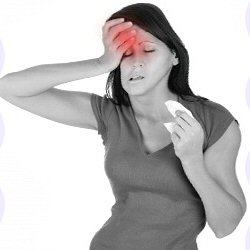 Feeling unsteady and nauseous
Feeling unsteady and nauseousThe do's and don'ts of attempting to find your triggers for this condition has its challenges.
For example, Monosodium Glutamate or MSG is often found in certain soups, Chinese food, and some fast foods.
It can also be hidden in some foods, so you will need to read the small print on labels. You can even call the manufacturer if in doubt.
An elimination diet for a month or so may be of some benefit to discover if food triggers are the problem.
After some time away from the suspected culprit, add it or them back (one at a time) until your symptoms return. If you keep a migraine diary and journal, you can track your triggers a lot easier.
What You Can't Change
There are certain things you just can’t change. I thought I could “cure” my migraines for way too many years.
Here are some facts to help you face reality of this debilitating condition.
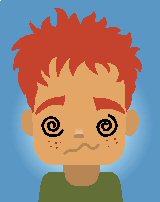 Extreme sensitivity to motion
Extreme sensitivity to motionFact 1: Migraine Associated Vertigo occurs mostly in woman and it can happen at any age.
Fact 2: The cause of MAV is still not fully understood and is therefore hard to diagnose.
Fact 3: Sadly, if you have migraines in your youth, you may develop vertigo later in life.
Fact 4: Medical treatment for migraine associated vertigo is similar to treating migraine headaches.
Fact 5: Migraines are a lifelong condition. MAV is the same. It is genetic and can be inherited.
Your first step is to find a good doctor who can work with migraines. Let him/her rule out the more serious life threatening conditions.
And then figure out your best way forward.
With any chronic illness you need to develop coping skills to manage it. Check out my book to ease stress and my migraine pain management courses for things like timing and forming some long term coping strategies.
Try These To Help Stop The Nausea
I use anti-nausea wrist bands with every attack accompanied by nausea.
The lavender and or peppermint essential oil just needs a few drops in a teaspoon of carrier oil (olive oil is perfect) and rub on temples and lower back and neck.
Here is my recipe for Ginger tea, it works a treat.
Oh, and holding onto something when you need to walk helps! A wall, a chair... the floor! Crawling may ease symptoms and is actually a good form of exercise (until you get to the right physiotherapist!).
Here are Two Important Migraine Associated Vertigo Links:
1. Vestibular Rehabilitation Therapy (VRT) at Vestibular.org.
2. Vestibular Rehabilitation Therapy at MedScape.com.
WANT MORE TIPS? Subscribe to my newsletter and follow along on Facebook and Pinterest for all of the latest updates.
MIGRAINE SYMPTOMS Related Articles
How to be more MIGRAINE SAVVY right now...
